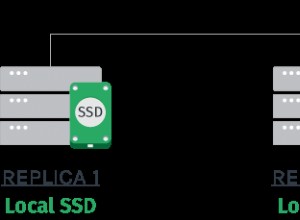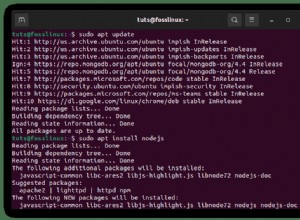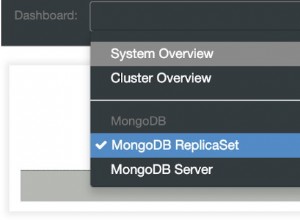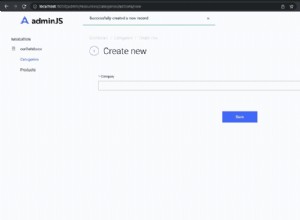L'interface Redis Transactions implémentée par le client C# Redis de ServiceStack.
Introduction #
L'interface de transaction Redis fournit des surcharges utiles qui vous permettent de mettre en file d'attente toute opération IRedisTypedClient dans une seule transaction. L'API prend en charge un rappel afin que vous ayez également accès à toutes les valeurs de retour renvoyées dans le cadre de la transaction.
Numéro d'utilisation
Vous trouverez ci-dessous un exemple simple montrant comment accéder, utiliser et valider la transaction.
var typedClient = Redis.GetTypedClient<MyPocoType>();
using (var trans = typedClient.CreateTransaction())
{
trans.QueueCommand(r => r.Set("nosqldbs", new MyPocoType {Id = 1, Name = "Redis"));
trans.Commit();
}
Pour une transaction qui fonctionne sur des valeurs de chaîne, voir IRedisTransaction.
Détails #
public interface IRedisTypedTransaction<T>
: IDisposable
{
void QueueCommand(Action<IRedisTypedClient<T>> command);
void QueueCommand(Action<IRedisTypedClient<T>> command, Action onSuccessCallback);
void QueueCommand(Action<IRedisTypedClient<T>> command, Action onSuccessCallback, Action<Exception> onErrorCallback);
void QueueCommand(Func<IRedisTypedClient<T>, int> command);
void QueueCommand(Func<IRedisTypedClient<T>, int> command, Action<int> onSuccessCallback);
void QueueCommand(Func<IRedisTypedClient<T>, int> command, Action<int> onSuccessCallback, Action<Exception> onErrorCallback);
void QueueCommand(Func<IRedisTypedClient<T>, bool> command);
void QueueCommand(Func<IRedisTypedClient<T>, bool> command, Action<bool> onSuccessCallback);
void QueueCommand(Func<IRedisTypedClient<T>, bool> command, Action<bool> onSuccessCallback, Action<Exception> onErrorCallback);
void QueueCommand(Func<IRedisTypedClient<T>, double> command);
void QueueCommand(Func<IRedisTypedClient<T>, double> command, Action<double> onSuccessCallback);
void QueueCommand(Func<IRedisTypedClient<T>, double> command, Action<double> onSuccessCallback, Action<Exception> onErrorCallback);
void QueueCommand(Func<IRedisTypedClient<T>, byte[]> command);
void QueueCommand(Func<IRedisTypedClient<T>, byte[]> command, Action<byte[]> onSuccessCallback);
void QueueCommand(Func<IRedisTypedClient<T>, byte[]> command, Action<byte[]> onSuccessCallback, Action<Exception> onErrorCallback);
void QueueCommand(Func<IRedisTypedClient<T>, string> command);
void QueueCommand(Func<IRedisTypedClient<T>, string> command, Action<string> onSuccessCallback);
void QueueCommand(Func<IRedisTypedClient<T>, string> command, Action<string> onSuccessCallback, Action<Exception> onErrorCallback);
void QueueCommand(Func<IRedisTypedClient<T>, T> command);
void QueueCommand(Func<IRedisTypedClient<T>, T> command, Action<T> onSuccessCallback);
void QueueCommand(Func<IRedisTypedClient<T>, T> command, Action<T> onSuccessCallback, Action<Exception> onErrorCallback);
void QueueCommand(Func<IRedisTypedClient<T>, List<string>> command);
void QueueCommand(Func<IRedisTypedClient<T>, List<string>> command, Action<List<string>> onSuccessCallback);
void QueueCommand(Func<IRedisTypedClient<T>, List<string>> command, Action<List<string>> onSuccessCallback, Action<Exception> onErrorCallback);
void QueueCommand(Func<IRedisTypedClient<T>, List<T>> command);
void QueueCommand(Func<IRedisTypedClient<T>, List<T>> command, Action<List<T>> onSuccessCallback);
void QueueCommand(Func<IRedisTypedClient<T>, List<T>> command, Action<List<T>> onSuccessCallback, Action<Exception> onErrorCallback);
void Commit();
void Rollback();
}




